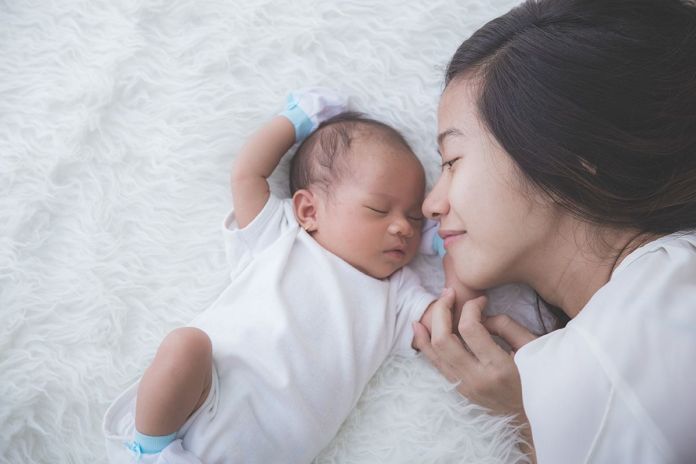Mother’s Day is around the corner and we’re sure all of you must have planned something special for your mums. But there is indeed a special bond between a new mother and their newborns. But since everything is so new, things can get a bit tricky for new moms.
To attain more knowledge about the bonding of a newborn with their mothers, we spoke to Divya Deswal. Divya herself has over 20 years of experience as a birth doula and is a HypnoBirthing childbirth educator-fertility practitioner and a Biodynamic Craniosacral therapist. She has held hands of more than 350 women during pregnancy in the last 10 years. She is one of the first doulas in India and co-founder of My Child First– a digital platform which provides parents and parents-to-be information on many aspects of childbearing and rearing. So, mommies, keep reading!
Hi Divya. Please Tell us about bonding between new mothers and their child. How quickly or gradually it happens and what’s the entire process?
Bonding and attachment is a biological imperative. Like all functions, nature has ensured the apparatus and hormones to create bonding. Firstly, bonding is not a time-bound event but it’s a progressive and dynamic continuum. As a woman gets pregnant many physiological changes occur that support pregnancy and birth. The very same hormones are key players in bonding, namely Oxytocin. Oxytocin is released in our bodies in lovemaking, labour, breastfeeding, close physical contact, behaviours that create reflect trust. The process of labour birth and breastfeeding is, therefore, a ‘Pathway to Bonding’.

Similarly, the baby is encoded with certain behaviour that elicits connection and oxytocin. One of these is breastfeeding. Most people confuse lactation with breastfeeding. Lactation is what the mother’s body does but breastfeeding is what the baby does. Thus the baby becomes the driver of the oxytocin flow in the mother. There may be even more to this, than just transfer of breast milk; the eye to eye gaze, the skin to skin contact is all player in the mechanism of attachment.
For all the new mothers out there, what are some great ways to develop a bonding with their child?

- The first step to bonding is proximity. Getting the mother and baby together. If we study the mechanism of bonding, it is evident that mother and baby were supposed to be together, right from the time of birth. Newborn breathing, heart rate and blood sugar stabilize faster and better in contact with the mother right after birth. The presence of the mother is a sense of safety for the baby.
- The same is true for the mother. This loss of connecting and care is detrimental for both mother and baby. So along with proximity, support for the mother is also an important factor in bonding. A mother creates another human being which is awe-inspiring. She needs to free herself of these demands and trust that she will be the mother the baby needs since the system is set by nature and run by the baby.
- The third important factor is therefore supported; Unconditional, non-judgmental and loving. No human deserves less, not the baby and not the mother. In fact, our support to the mother is a model for mothering behaviour itself. There is no way to cognize emotion and thus cannot be learnt from experts but is certainly learnt by observation and lived experience.
A lot of mothers at times feel disconnected with their child, especially with postpartum depression and hormone changes. How can a new mom bond with the child in such a scenario?

While women experience of postpartum depression is real, challenging and a loss for their relation to themselves and baby and family, I am not sure that in all the cases we have the sequence right. Prolactin, the hormone for milk making, has anti-depressive properties. Oxytocin too supports connection with the baby and is a buffer for depression. Have we ruptured the continuum of nature, the process that offers all resources to ensure the mother-baby dyad thrive- physically, emotionally, mentally? Supporting women to find a connection with themselves and the flow of life is the precursor to connection with the baby.
In your personal experience, does being a caregiver yourself help somehow in becoming a better and well-connected mother to your children?

In reality, the opposite may be true. Motherhood and my children make me a good birth worker. When I did have my children I knew nothing of what I know today. I was a civil engineer with a job with a project managing firm. My childbearing and rearing process was and is entirely intuitive. In fact, becoming a mother and my relationship is the foundation of my passion in my work. Science has only proved what I already knew to be right. The best piece of parenting advice was from my grandmother. She said “The baby will teach you all you need to know about motherhood” and my children have taught me all I need to be the person I want to be.
(Featured Image Source: Baby Sleep Made Simple)




